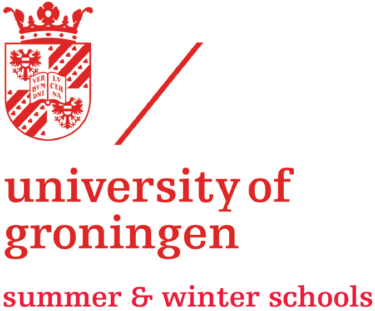
Lugano, Switzerland
Visual Thinking for (PhD) Researchers
When:
08 August - 09 August 2025
Credits:
0 EC
Read more
Social Sciences & Educational Sciences Summer Course
When:
07 July - 07 July 2025
School:
University of Groningen Summer Schools
Institution:
University of Groningen
City:
Country:
Language:
English
Credits:
0 EC
Fee:
615 EUR


Knowing how we got to where we are is key to changing the future. Most of us do not consider ourselves to be racist, sexist, or otherwise biased, yet we operate in societies that are deeply characterised by uneven power structures and enduring systemic inequalities created long ago that still have strong influences today.
Without a clear grasp of the history of inequities, why and how they were created and perpetuated — and how they still impact us today — our efforts at inclusivity are only partially informed at best. As DEI practitioners, the resulting risk is that of performative or superficial efforts rather than work that addresses core issues to create sustainable change.
Why attend?
Attend this course for a deeper understanding of the historical roots of power, privilege, and systemic discrimination and how these influence us (often unconsciously) today in the forms of racism, sexism, xenophobia, and other biases. You’ll gain the confidence and competence to navigate complex, challenging, yet necessary conversations about these issues with stakeholders.
This course is co-led by a historian and a DEI practitioner who, together, explore these issues.
Dr. Anjana Singh & Drs. Michaela Carriere
Participant profile
- Serving in a role to support colleagues’ professional development and wellbeing (e.g. HR, human capital, people development)
- Implementing diversity, inclusion, and equity initiatives within an organisation and want to address (inter)personal changes needed to strengthen their impact
- Providing training or on-the-job professional development opportunities to help colleagues better communicate and collaborate across diversity
- Teaching or training across cultures in a way that acknowledges historically rooted power dynamics and inequities to create more inclusive learning experiences for all learners
Please note that this course focuses on individual / interpersonal skills development rather than organization-level efforts (e.g. policies, procedures) also needed for sustainable change. Different DAD courses may be available to examine effective structural approaches to this topic.
Contact the organisers at ic@rug.nl or info@iddifferences.org if you have questions about the suitability of this course for your circumstances.
Level requirements
The DAD is for multipliers who help individuals, organizations and societies better recognize, appreciate and use differences as a way of better communicating, working and thriving together.
These are (in-house and external) trainers, educators, consultants, coaches, researchers, scholars, facilitators, HR staff, advanced-level (MA+) students, and professional development specialists with 5+ years of experience/study in the greater Differences field. Contact the organisers at ic@rug.nl or info@iddifferences.org for consultation about appropriateness and eligibility.
It is expected that the participants have a sufficient command of the English language to actively participate in the discussions and to present their own work in English.
In this course, you will learn how to help yourself and those you work with so that you/they can better:
- Understand the historical underpinnings of racial, ethnic and other discriminatory practices.
- Appreciate and articulate ways in which negative aspects of legacy can be present in current interpersonal dynamics and interactions.
- Identify key interpersonal strategies for how to “break” with history in order to create more equitable systems moving forward.
- Develop and deepen interpersonal skills in order to begin to enable more constructive and inclusive interactions about difficult topics using perspective taking, holding space for discomfort in dialogues, using emotion regulation techniques, and offering/accepting genuine apologies, that can ultimately contribute to a more equitable future.
Workload
6 hours of in-class learning and active participation using experiential methods.
Upon successful completion of the programme, the Summer School offers a Certificate of Attendance that mentions the workload of 6 hours (28 hours corresponds to 1 ECTS). Students can apply for recognition of these credits to the relevant authorities in their home institutions, therefore the final decision on awarding credits is at the discretion of their home institutions. We will be happy to provide any necessary information that might be requested in addition to the certificate of attendance.
Fee
615 EUR, includes course and materials, optional evening programming
When:
07 July - 07 July 2025
School:
University of Groningen Summer Schools
Institution:
University of Groningen
Language:
English
Credits:
0 EC

Lugano, Switzerland
When:
08 August - 09 August 2025
Credits:
0 EC
Read more

Maastricht, Netherlands
When:
07 July - 11 July 2025
Credits:
2 EC
Read more

Groningen, Netherlands
When:
07 July - 11 July 2025
Credits:
2 EC
Read more